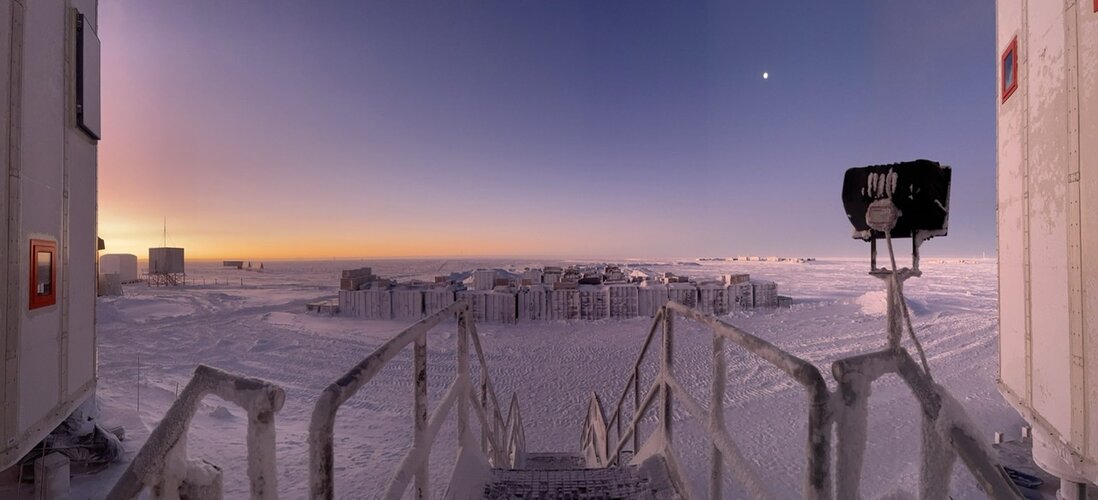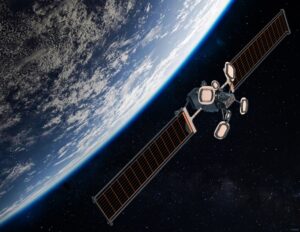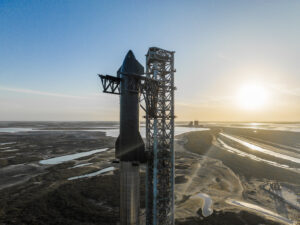'Cannibal' solar burst headed for Earth could make northern lights visible in U.S.
Friday, 19 August 2022 11:48 A plume of "dark plasma" from the sun is expected to be overtaken by a "cannibal" solar burst that may cause an aurora display visible throughout large portions of the United States on Thursday.
The first "dark plasma explosion" was first seen on Sunday after erupting from a sunspot on the sun's surface at a speed of 1.3 million mph, tearing through the sun's atmosphere and creating a c
A plume of "dark plasma" from the sun is expected to be overtaken by a "cannibal" solar burst that may cause an aurora display visible throughout large portions of the United States on Thursday.
The first "dark plasma explosion" was first seen on Sunday after erupting from a sunspot on the sun's surface at a speed of 1.3 million mph, tearing through the sun's atmosphere and creating a c MariaDB reimagines how databases deliver geospatial capabilities with acquisition
Friday, 19 August 2022 11:48 MariaDB Corporation has announced it has acquired CubeWerx, leaders in geospatial solutions, for an undisclosed amount. With the acquisition, MariaDB adds cloud-native, scalable geospatial capabilities that the company plans to offer through its fully managed cloud service MariaDB SkySQL. Applications that leverage geospatial data are truly transformative, enabling businesses to offer new produc
MariaDB Corporation has announced it has acquired CubeWerx, leaders in geospatial solutions, for an undisclosed amount. With the acquisition, MariaDB adds cloud-native, scalable geospatial capabilities that the company plans to offer through its fully managed cloud service MariaDB SkySQL. Applications that leverage geospatial data are truly transformative, enabling businesses to offer new produc Launch Schedule for 3rd StriX-1 SAR satellite
Friday, 19 August 2022 11:48 Synspective Inc., a SAR satellite data and analytic solutions provider, reports that the official launch schedule of StriX-1, the company's third SAR satellite.
StriX-1 has a launch window starting from mid-September (UTC). Exact lift-off target date and time will be confirmed soon.
Please note that the launch may be postponed or canceled due to unforeseen weather conditions or compl
Synspective Inc., a SAR satellite data and analytic solutions provider, reports that the official launch schedule of StriX-1, the company's third SAR satellite.
StriX-1 has a launch window starting from mid-September (UTC). Exact lift-off target date and time will be confirmed soon.
Please note that the launch may be postponed or canceled due to unforeseen weather conditions or compl The Lacuna Space water monitoring system
Friday, 19 August 2022 11:48 Semtech Corporation (Nasdaq: SMTC), a leading global supplier of high performance analog and mixed-signal semiconductors and advanced algorithms, announced a collaboration with New Zealand's IoT Ventures and global connectivity provider Lacuna Space.
IoT Ventures has used Semtech's LoRa devices to develop its Drought Early Warning System, a network of low-cost rainwater tank and rain monit
Semtech Corporation (Nasdaq: SMTC), a leading global supplier of high performance analog and mixed-signal semiconductors and advanced algorithms, announced a collaboration with New Zealand's IoT Ventures and global connectivity provider Lacuna Space.
IoT Ventures has used Semtech's LoRa devices to develop its Drought Early Warning System, a network of low-cost rainwater tank and rain monit Track NASA's Artemis I mission in real time
Friday, 19 August 2022 11:48 Join NASA's Orion spacecraft on its first mission around the Moon using the Artemis Real-time Orbit Website (AROW) to track the spacecraft's flight as it happens.
During Artemis I, Orion will travel to 40,000 miles beyond the Moon in the first integrated flight test with the Space Launch System (SLS) rocket. Using AROW, almost anyone with internet access can pinpoint where Orion is and tra
Join NASA's Orion spacecraft on its first mission around the Moon using the Artemis Real-time Orbit Website (AROW) to track the spacecraft's flight as it happens.
During Artemis I, Orion will travel to 40,000 miles beyond the Moon in the first integrated flight test with the Space Launch System (SLS) rocket. Using AROW, almost anyone with internet access can pinpoint where Orion is and tra How Martian ionospheric dispersion effected on SAR imaging
Friday, 19 August 2022 11:48 The subsurface of Mars records important historical information on the formation and evolution of Mars. As an ionized medium, the Martian ionosphere plays a special role in radio wave propagation and is directly related to the local communication on Mars and the communication between Mars and Earth.
Therefore, the information on the subsurface and the Martian ionosphere provides a scientif
The subsurface of Mars records important historical information on the formation and evolution of Mars. As an ionized medium, the Martian ionosphere plays a special role in radio wave propagation and is directly related to the local communication on Mars and the communication between Mars and Earth.
Therefore, the information on the subsurface and the Martian ionosphere provides a scientif NASA selects astrophysics mission proposals for study
Friday, 19 August 2022 10:51
NASA has selected four mission concepts for additional study in the latest round of an astrophysics program, but selected missions could face delays because of budget constraints.
The post NASA selects astrophysics mission proposals for study appeared first on SpaceNews.
Winter, over
Friday, 19 August 2022 10:23 Image:
Image:
The 12-member crew of Concordia research station woke up to a most welcome sight in early August: sunrise, after four months of Antarctic darkness.
The return of the sun is a major milestone for the isolated and confined crew; they are three-quarters of the way through their Antarctic residency and will soon prepare to welcome the summer influx of researchers at the base.
ESA-sponsored medical doctor Hannes Hagson snapped this picture from the Station’s front door in early on 5 August. “Time here has the strange quality of both passing really quickly and very slowly at the same time,” he shared, “and
ESA to request funding for space-based solar power study
Friday, 19 August 2022 00:16
The European Space Agency will seek funding this fall for a feasibility study of space-based solar power, the latest sign of support for a concept that still faces significant technical and financial challenges.
The post ESA to request funding for space-based solar power study appeared first on SpaceNews.
As DoD shifts to smaller satellites, new questions emerge on how to manage rideshare launches
Thursday, 18 August 2022 21:11
Lawmakers in the 2023 NDAA recommended that the Space Force and Space Development Agency use a "common launch integrator" to manage rideshares
The post As DoD shifts to smaller satellites, new questions emerge on how to manage rideshare launches appeared first on SpaceNews.
As DoD shifts to smaller satellites, rideshare questions emerge
Thursday, 18 August 2022 21:11
Lawmakers in the 2023 NDAA recommended that the Space Force and Space Development Agency use a "common launch integrator" to manage rideshares
The post As DoD shifts to smaller satellites, rideshare questions emerge appeared first on SpaceNews.
Maxar receives delayed Ovzon 3 satellite parts
Thursday, 18 August 2022 21:10
Ovzon’s first satellite is set to launch between December and February following the delivery of parts caught up in supply chain delays, the Swedish broadband service provider said Aug. 18.
The post Maxar receives delayed Ovzon 3 satellite parts appeared first on SpaceNews.
Outer space is not the 'Wild West': There are clear rules for peace and war
Thursday, 18 August 2022 20:41
The release of the first images taken by NASA's James Webb Space Telescope will inspire generations with the infinite possibilities that outer space holds. Clearly, we have a responsibility to ensure that only peaceful, safe, sustainable, lawful and legitimate uses of space are undertaken for the benefit of humanity and future generations.
In pursuit of this, over the past six years McGill University and a host of collaborating institutions around the world have been involved in the drafting of the McGill Manual on International Law Applicable to Military Uses of Outer Space.
In August, the first volume of the McGill Manual was published. It contains the 52 Rules, adopted by consensus by the group of experts. The rules clarify the international law applicable to all space activities conducted during peacetime and in times of tension that pose challenges to peace.
Growth of space infrastructure
Since the beginning of the Space Age 65 years ago, we have witnessed tremendous strides in space exploration that have benefited life on Earth.
Sky Perfect JSAT picks SpaceX’s Starship for 2024 satellite launch
Thursday, 18 August 2022 18:40
Sky Perfect JSAT said Aug. 18 it has picked SpaceX’s Starship rocket to launch its Superbird-9 satellite in 2024.
The post Sky Perfect JSAT picks SpaceX’s Starship for 2024 satellite launch appeared first on SpaceNews.

